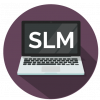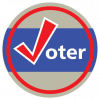Scholarship Award/Denial Letters - Paper or Digital?


Hello all,
Just curious to see how folks handle their award/denial letters for scholarship applicants. Currently, we send paper award and denial letters to every applicant that finishes and submits an application. We also send an email to award recipients with more detailed instructions on how to complete the follow-up to claim their award. As we send out hundreds of paper letters every year, the question always comes up of whether it is worthwhile or not. The letters are generally misplaced by students, or unopened, where the emails can easily be found again. Would love to hear how other foundations handle this!
Comments
-
@LizMcClure A few years ago we migrated to emailing applicants, both approval and denial letters. We have saved a great deal of time and money with this transition.
Best,
Deirdre
2 -
Hi Liz,
Prior to joining Foundant I was a grants and scholarship manager at The Dallas Foundation. We also did paper award/denial letters for every application that came in (over 2,000) but it proved to be very time consuming, and expensive. While SLM made it easy to batch create letters, it still takes a manual process to fold/stuff/apply postage, etc. On top of that, we often had incorrect (or more likely, incomplete) addresses, so letters would get returned to us when a student forgot to put their apartment number on their street address, for example.
Any time I interacted with students I tried to ask the best way to get in touch with them, and 10 years ago they were saying their school email address. That's probably even moved to text message now. But yes I agree with you, the great thing about email is they have access to it and you have access to it, so if it accidentally got deleted on their part, you could find it in your sent box and resend. Hope this is helpful!
1 -
I am in the middle path, denials emailed and award letters mailed but after your comments I may review.
Is there really another Deirdre out there?
Deirdre McLoughlin
Western Colorado Community Foundation
4 -
We also contact everyone that has submitted an application. Last year we moved to all email contact for both awards and denial. A great time saver as well as paper saver.
Good luck. Joann
3 -
Let me put that one on my to think about list.
Thank you
2 -
We currently send out letters. Might rethink but like the tracking of a letter coming back undeliverable. So can contact student and then don't have to worry about the check being returned.
0 -
We do exclusively email for scholarships. With SLM it is easy to see if they opened the email or not, and if it was actually delivered. If they have not opened it, then I follow up via phone or text. Stuffing and mailing a hundred or so letters would be too time consuming. We also have been transitioning to electronic payment for as many scholarships as possible to avoid having lost and returned checks, which always seems to happen! Last year was the first year with electronic payments and it was pretty successful.
0








